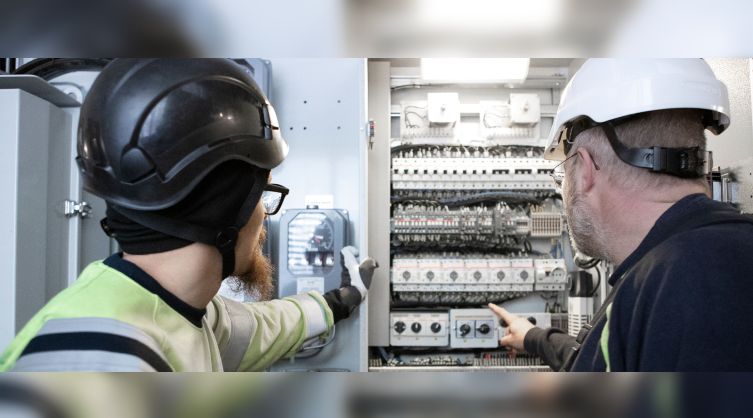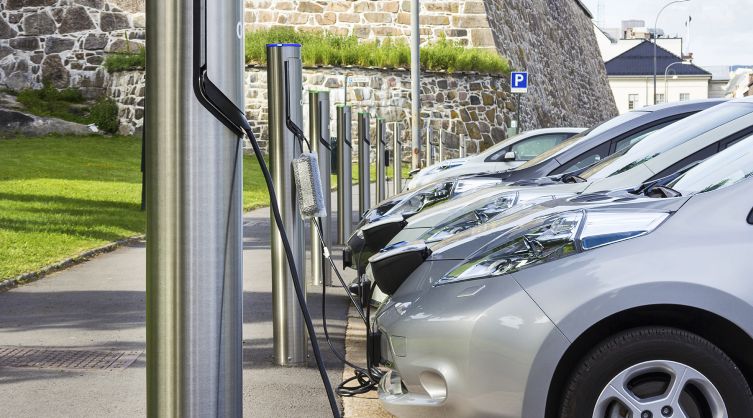UK is expected to double its electrical consumption by 2042
By EPR Magazine Editorial November 24, 2022 6:50 pm IST
By EPR Magazine Editorial November 24, 2022 6:50 pm IST

This year, Europe has been struck with multiple blows to its energy security: eye-watering fuel costs instigated by Russia’s invasion of Ukraine; the deepening climate emergency; and pandemic-driven demand shock to name a few. These critical events have highlighted the fragility of our energy markets, accelerating national efforts to transition towards clean electricity and away from fossil-fuel dependency.
In other words – our race to an electric future has officially begun.

Companies such as Amazon, DHL and UPS are already making the switch to electric vehicles (EVs) influenced by lower running costs, penalty-free access to cities and government grants for plug-in vans. While the UK government is making efforts to produce and procure the additional power for our electric future, getting it to where it’s needed is an additional challenge.
Charging electric vehicles and powering operations which were previously driven by fossil fuels requires upgrading the UK’s electricity grids – both on the distribution networks and on business’ private wire networks – to support our transition towards a more resilient economic future.
Upgrade today, prepare for tomorrow
As interest in electric energy powers up, networks are set to undergo the biggest transition since the super grid was established in the 1950s. The UK is expected to more than double its electrical consumption in the next 20 years, meaning that significant grid reinforcements and upgrades to businesses’ on-site private wire networks will be essential to efficiently (and safely) facilitate electrical power demands.
Most businesses’ existing electrical infrastructure is not sufficient to cope with the additional demands, but concerns about investment costs mean that major upgrades all-too-often get put in the ‘let’s worry about that later’ category. Unfortunately, this recourse cannot last forever.
Upgrading a business’s high voltage electrical infrastructure today to cope with a switch from a gas-powered boiler to electric or powering a fleet of EV vans and trucks tomorrow is a prudent plan; leaving it until the last moment could have significant consequences. A shortage of equipment, expertise, and increased wait times for upgraded or new grid connections could cause bottlenecks, downtime and become a competitive disadvantage.Outsourcing: a cost-effective solution
Fortunately, there is a means to future-proof a company’s high voltage electrical infrastructure for zero up-front cost – via outsourcing. Instead of tying up capital in expensive electrical infrastructure, companies can outsource the risks and responsibilities for EV charging and other electrical upgrades through Power-as-a-Service. The asset-adoption model has been established for 20 years in our home market of Sweden, and is now growing here in the UK.
Vattenfall’s IDNO business can provide ‘cash-back’ via Asset Adoption Value payments for new or upgraded grid connections, while Power-as-a-Service can cover the costs of new high voltage electrical infrastructure (such as energy efficient transformers) or upgrades to existing networks – including EV charge points. The CAPEX for solar PV panels and batteries can also be included in Power-as-a-Service contracts, which have been proven to significantly improve a business’s energy resilience.
Power-as-a-Service provides an attractive alternative for company owners who lack the funds, knowledge or expertise, or do not want the burden of upgrading their own HV electrical infrastructure. Companies such as Vattenfall shoulder the electrical, environmental and legislative risks by owning the infrastructure, and managing all compliance and regulatory issues.
Ultimately, planning ahead is essential for the UK to go fossil free. And with consumer demand predicted to rise dramatically in the next 10, 20, 30 years, hitting the mark for essential upgrades has never been more strategically and competitively advantageous.
We use cookies to personalize your experience. By continuing to visit this website you agree to our Terms & Conditions, Privacy Policy and Cookie Policy.